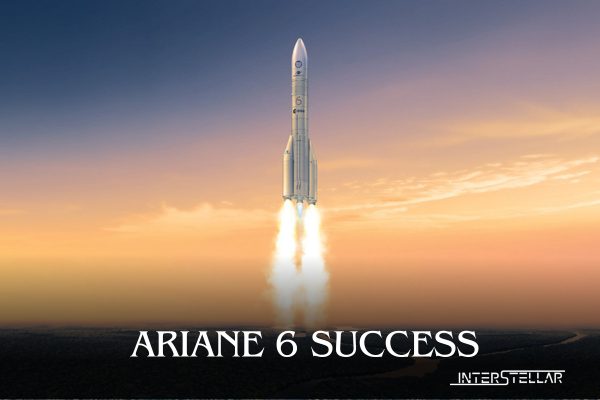Europe Reaches New Heights with Ariane 6 Rocket Launch
Successful Debut Flight
Europe celebrated a significant milestone as the Ariane 6 rocket successfully completed a series of trials during its debut flight. The launch, which took place on Tuesday, marked Europe’s return to space. Despite a minor hitch at the end, European space officials hailed the mission as a success.
Independent Access to Space Restored
The Ariane 6 rocket lifted off from French Guiana at around 4 p.m. local time (1900 GMT). This event restored Europe’s independent access to space after a series of delays, political setbacks, and funding debates. Although the mission was not commercial, it successfully deployed three sets of micro-satellites for research purposes.
Technological Milestones Achieved
One of the key achievements of this mission was the successful restart of the Vinci engine in space. This upper stage engine is designed to restart multiple times, enabling Arianespace to place payloads into different orbits. However, a third firing was abandoned due to an unspecified shutdown of a smaller power unit, leaving the final batch of payloads onboard.
Future Prospects and Challenges
Despite the minor anomaly, ESA Director General Josef Aschbacher confirmed plans for a second flight by the end of the year. Developed at a cost of approximately 4 billion euros ($4.33 billion) by ArianeGroup, Ariane 6’s first launch had been delayed multiple times since 2020.
Europe’s independent access to space had been compromised since the retirement of the Ariane 5 rocket. The geopolitical situation, including the war in Ukraine, had further complicated matters by cutting off ties to Russian Soyuz rockets.
Competitiveness in the Space Market
Europe’s space ambitions face stiff competition from the United States, particularly from Elon Musk’s SpaceX. The Ariane 6 programme, initiated in 2014 by ESA’s 22 nations, aims to counter this competition. However, it may take some time before Ariane 6 becomes economically competitive.
Recently, Eumetsat opted to launch its next satellite on a Falcon 9 instead of the Ariane 6, highlighting the challenges Europe faces in maintaining competitiveness.
A Symbol of European Unity
French Finance Minister Bruno Le Maire underscored the importance of the Ariane programme as a symbol of European unity and determination. Despite the challenges, European officials remain optimistic about the future of Ariane 6, which has 29 missions lined up over the next several years, including 18 launches for Amazon’s Kuiper internet constellation.
Conclusion
The successful debut flight of Ariane 6 marks a new chapter in Europe’s space exploration efforts. With continued support and determination, Europe aims to solidify its position in the global space market, showcasing its technological prowess and unity.





